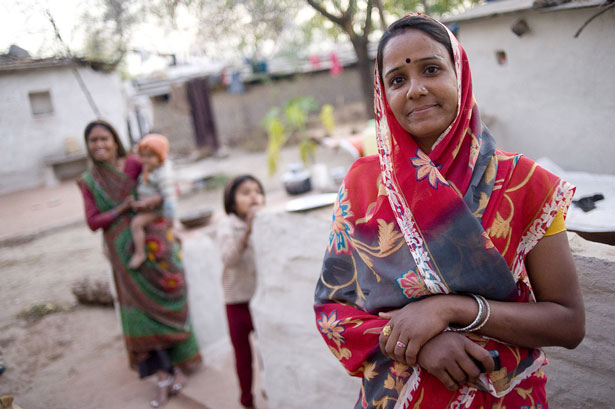-
Religion and Reproductive Rights: Looking For Common Ground
September 23, 2013 By Jacob Glass
More than 84 percent of the 2010 world population – 5.8 billion people – consider themselves religiously affiliated, according to a recent study. Religious leaders can therefore have significant influence across a broad range of social, economic, and political issues. Perhaps nowhere is that influence felt more strongly than in debates about reproductive health and rights, and perhaps nowhere are the consequences so large than in poor and marginalized communities.
As the sexual rights, population, and human rights communities review the operationalization and effectiveness of the landmark 1994 International Conference on Population and Development, which established access to family planning as a human right, there is a need to better understand the intersection of faith and reproductive health. A private event held at the Wilson Center on August 22, co-sponsored by the Global Interfaith and Secular Alliance, featured a panel of religious leaders and women’s health experts in a thoughtful discussion about this sometimes contentious issue.
Narrow Debates, Broad Implications
Despite Europe’s reputation for socio-political liberalism, Neil Datta, secretary of the European Parliamentary Forum on Population and Development, said that an increasing number of European public policies in the past decade have sought to restrict women’s reproductive rights, both directly and indirectly.
Though these issues have long been a source of passionate debate throughout Europe, Datta noted that less controversial health services have recently been called into question. For example, he described a push to ban the European Union from funding maternal health programs in the developing world because some considered them a “slippery slope” towards other services. According to Marieme Helie Lucas, founder of Secularism Is a Women’s Issue and Women Living Under Muslim Laws, such attempts to infringe on women’s reproductive rights have become more prevalent in Europe and across the world, regardless of the particular religious context.
In the Philippines, Magdalena Lopez, the international program director for Catholics for Choice, noted that the Philippine Catholic Church recently helped suspend a reproductive health bill. Besides blocking programs offering contraceptive services, the defeat of the law would cut funding for new women’s health facilities and midwife training aimed at making delivery and pregnancy safer for women and newborns. Such health interventions are sorely needed in a country where the maternal mortality rate is 99 per 100,000 live births, compared to an average of 20 per 100,000 in Europe.
Where women’s rights are being denied, those most affected are those most vulnerable – the young, the old, the uneducated, and the poor, said Sivananthi Thanenthiran, executive director of the Asian-Pacific Resource and Research Centre for Women. “Others have the means to escape such barriers.”
Creative Ways of Moving Forward
Ramon San Pascual, the executive director of the Asian Forum of Parliamentarians on Population and Development, emphasized the need to think creatively about bolstering support for maternal health issues. For example, he said the environmental community should be viewed as potential partners. By approaching reproductive health as part of an integrated population, health, and environment (PHE) development model that makes clear the varied socioeconomic effects it can have, more support can be leveraged to improve women’s lives. “These are linked issues,” San Pascal said.
Rabbi Dennis Ross, director of Concerned Clergy for Choice, said his organization “reminds the public that there is more than one religious perspective about religious teachings.” If policymakers are made aware of interpretations that promote women’s wellbeing, they may be less likely to pass legislation restricting women’s rights to reproductive health services, he suggested.
In noting the universality of human rights, dignity, and equality – values agreed upon by 179 countries at the International Conference on Population and Development – San Pascual said opportunities to forge common ground around these issues clearly exist.
“Give every girl an equal say in the construction of the family and the ability to understand what is happening to her body,” he said. “I would like my daughter to have a choice.”
Sources: Pew Research Center, United Nations Population Fund.
Photo Credit: An Accredited Social Health Activist in Madhya Pradesh, courtesy of Nick Cunard/DFID.
 A Publication of the Stimson Center.
A Publication of the Stimson Center.



